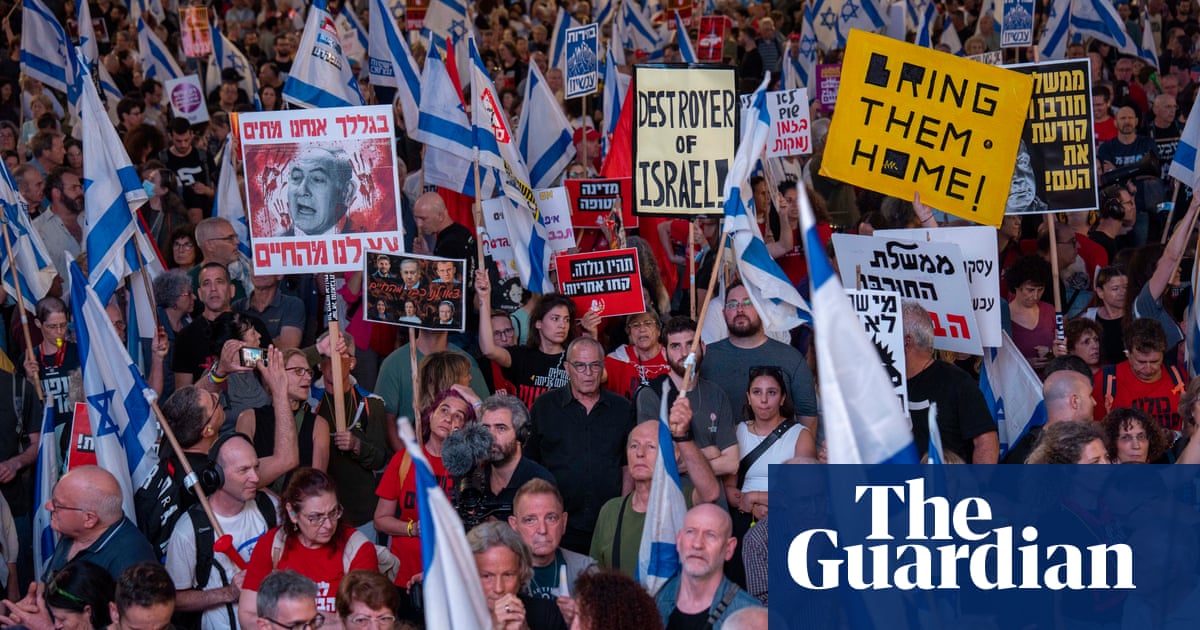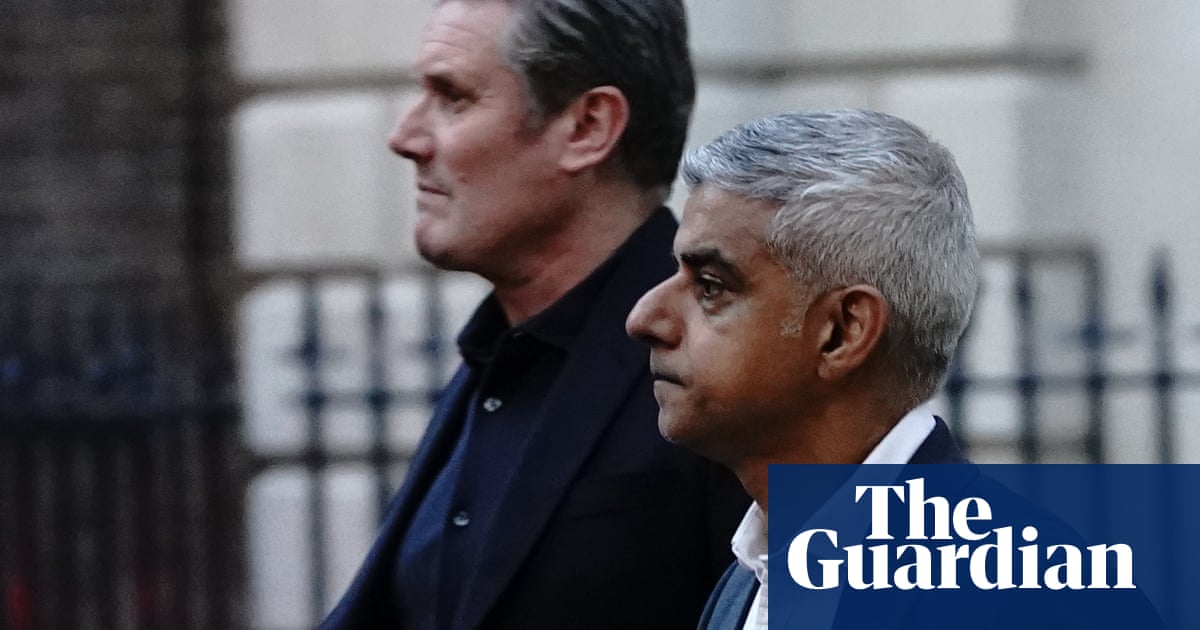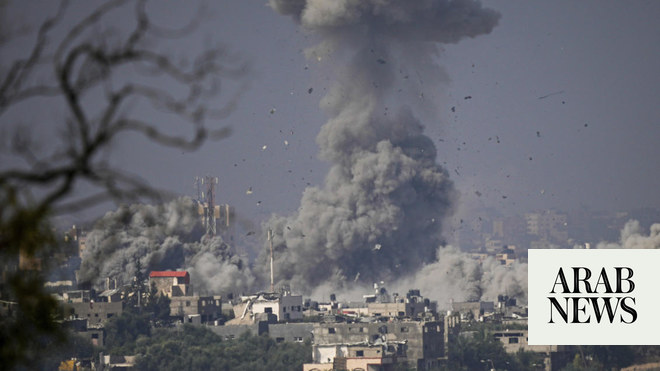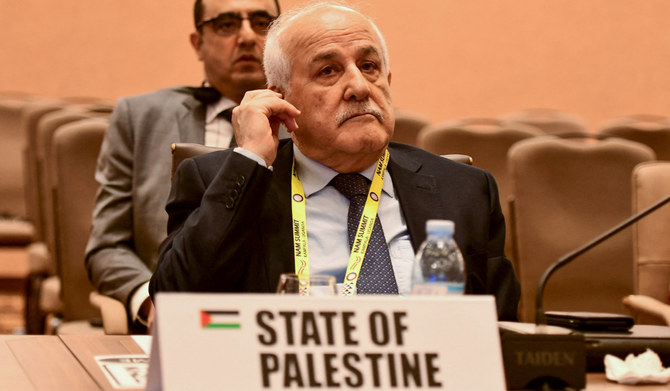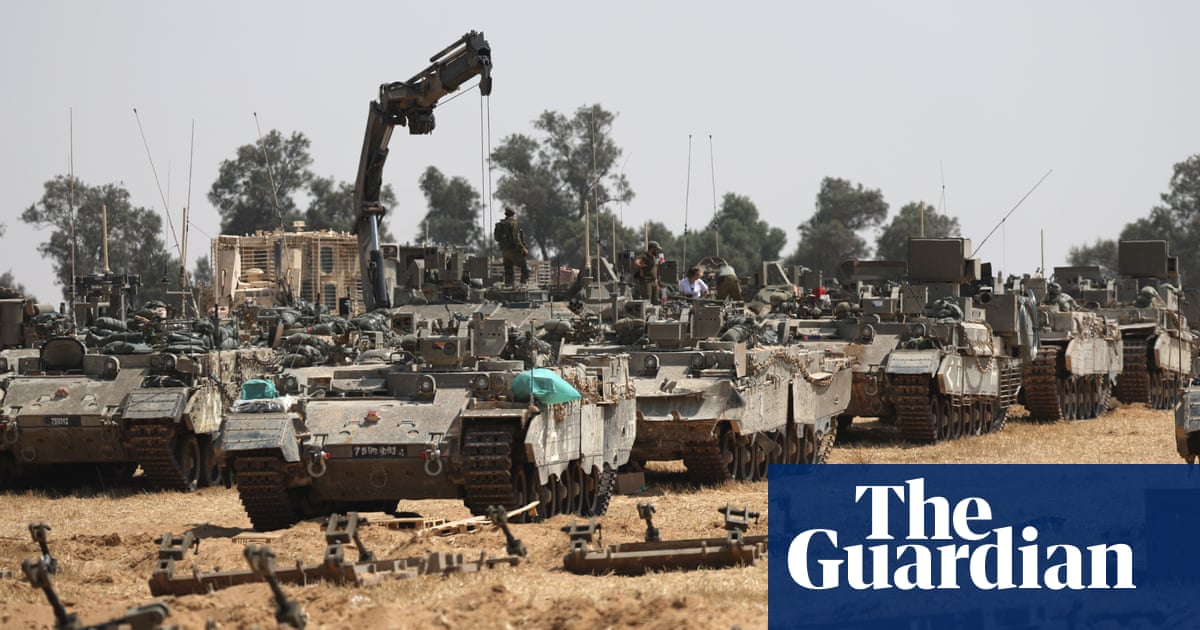
Israel is coming under huge diplomatic pressure to accept a three-stage ceasefire surprisingly agreed by Hamas, despite the apparent determination of its prime minister, Benjamin Netanyahu, to continue with a planned offensive in Rafah.
Netanyahu’s office said that the proposal Hamas accepted was “far from Israel’s essential demands” but that it would nonetheless send negotiators to continue talks on a deal.
At the same time, the Israeli military said it was conducting “targeted strikes” against Hamas in eastern Rafah.
The already strong calls for Israel not to go ahead with a full-scale offensive on Rafah, in southern Gaza, are also likely to be redoubled with the US Department of State saying no credible plans for such a military had been shown to US officials as Israel ordered 100,000 people to evacuate the east of the city.
Matthew Miller, the US state department spokesperson, said Washington would discuss the Hamas response with its allies in the coming hours, and a deal was “absolutely achievable”.
Turkey’s president, Recep Tayyip Erdoğan, was one of the first world leaders to call for Israel to accept the ceasefire. Speaking after a cabinet meeting on Monday evening, he urged western countries to increase pressure on Israel’s leadership to accept.
“We welcome the statement by Hamas that they accepted the ceasefire with our suggestion. Now, Israel must take the same step,” Erdoğan said.
France has already said it would be a war crime for Israel to attempt forcibly to displace thousands of Palestinian civilians in living in camps in Rafah on the Egyptian-Gaza border. Israel had said it was starting an operation to evacuate 100,000 Palestinians from the city as the precursor for an offensive that it added would eradicate the remaining operational Hamas battalions.
The UN secretary general, António Guterres, was “deeply concerned by the indications that a large-scale military operation in Rafah may be imminent”, according to his spokesperson, who called on Israel and Hamas “to go the extra mile needed to make an agreement come true and stop the present suffering”.
The diplomatic turnaround was dramatic given that on Sunday it appeared as if the indirect talks conducted in Egypt had collapsed largely due to a Hamas demand that the ceasefire would become permanent and not confined to three stages – each lasting 42 days that would end when all the Israeli hostages were released.
Hamas was also seeking a guarantee, ideally from the US, Russia, China and Turkey, that Israel would end the attack on Gaza permanently, even if the Islamist group was not prepared to state as much.
But by Monday morning Netanyahu had rejected anything but total victory and appeared about to launch the first stage of the Rafah offensive with the order for civilians to evacuate.
Qatar strove on Monday to keep the talks alive, with the help of the CIA director, William Burns, who had flown from Cairo to Doha to speak to the Hamas delegation. Just as it appeared as if the talks had been suspended permanently, the political leader of Hamas, Ismail Haniyeh, suddenly informed Qatar’s mediators it was prepared to accept a ceasefire, knocking the ball back into Netanyahu’s court.
The Hamas negotiators also said they would be travelling from Doha to Cairo on Tuesday to finalise the agreement.
An Israeli official quoted by the Reuters news agency dismissed the move, describing the proposal that Hamas had accepted as a “softened” version of an Egyptian proposal, which included “far-reaching” conclusions that Israel could not accept.
“This would appear to be a ruse intended to make Israel look like the side refusing a deal,” said the Israeli official, who spoke on condition of anonymity.
But other officials who spoke later said while it was “not the framework Israel proposed” it was being examined as it formulated a formal response.
Israel’s options may, however, be narrowing as the west led by the US insisted that an attack on Rafah was not achievable without unacceptable loss of life and long-term damage to Israel’s relations with western and Gulf states.
The most direct warning to Israel not to attempt to drive out 1 million displaced Palestinians came from the French foreign ministry, which told the Israeli government it would be committing a war crime under international law if it sought to forcibly displace Palestinian civilians from Rafah. The ministry’s warning followed a call on Sunday evening between Netanyahu and the French president, Emmanuel Macron, in which Macron restated his opposition to a full-scale offensive.
The Jordanian foreign minister, Ayman Safadi, said the international community would be left with an “indelible stain” if it allowed Israel’s threatened attack on Rafah to go ahead. “Another massacre of the Palestinians is in the making,” he said. “Israel is warning Palestinians to leave Rafah as it threatens an attack. All must act now to prevent it. Failure to prevent the massacre will be an indelible stain on the international community. Too many massacres have been allowed. Enough.”
Egypt, which like Jordan has a peace deal with Israel, called on Israel to “exercise the utmost restraint and avoid further escalation at this extremely sensitive time in the process of ceasefire negotiations, and to spare the blood of Palestinian civilians who have been exposed to an unprecedented humanitarian catastrophe since the start of the war on the Gaza Strip.”
Saudi Arabia also warned of the dangers of an attack on Rafah “in the light of the lack of safe zones after the massive destruction caused by the Israeli war machine”.
European diplomats had seemed unwilling to accept claims that the evacuation order was simply a limited operation to move some displaced Palestinians and so force Hamas to accept the terms Israel was offering on a ceasefire and hostage deal. The EU foreign affairs chief, Josep Borrell, said on Monday: “Israel’s evacuation orders to civilians in Rafah portend the worst: more war and famine.”
US diplomats including the US ambassador to the UN, Linda Thomas-Greenfield, have reiterated that Washington could not support an Israeli attack on Rafah without seeing credible plans to protect the civilian population.
It remains to be seen whether the US would be willing to ban arms exports to Israel as an ultimate deterrent. Netanyahu has said he is willing to see Israel isolated internationally in its attempt to secure a final victory against Hamas.





